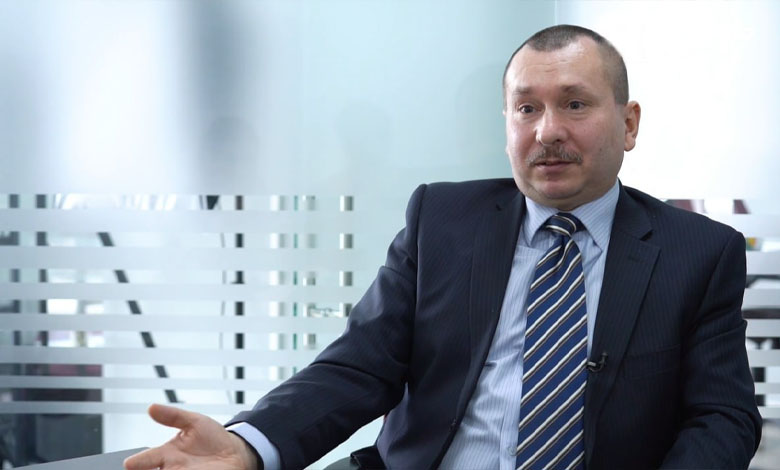How MPs want to ‘motivate’ those soldiers who have left the unit without permission: Oleksandr Sayenko

The unauthorised abandonment of a military unit or place of service (POS), i.e. desertion, is a complex problem that has become particularly relevant during the martial law period in Ukraine. Such behaviour not only threatens the combat capability of military units, but also negatively affects the morale of the army, creating a sense of impunity and undermining discipline. In early October, the Verkhovna Rada of Ukraine registered draft law No. 12095, the initiators of which propose not to suspend military service for soldiers who have left their units or places of service without permission and to provide them with seniority, material and clothing support.
Draft law No. 12095 as a threat to military discipline and morale
This draft law caused outrage and criticism from military experts. Oleksandr Sayenko, a military attaché in France (2011-2012), brigade commander during the war (2022-2023) and analyst at the Independent Anti-Corruption Commission (NAKO) , believes that these changes pose a threat to the army’s combat capability and the country’s security. The expert explains in detail that draft law No. 12095 actually legalises AWOL as a type of service, preserving seniority, salary, military ranks and material property for such servicemen.
“If a serviceman leaves a military unit or a place of service (FSO) without permission and military service is not suspended, then in this case:
For the entire period of stay at the ALF (month, year, two, ten), he should be credited with years of service, which directly affects the receipt of a pension. 25 years in the ELF – you are entitled to a pension.
For the entire period of stay in the AFU (month, year, two, ten), the length of service in military rank is halved for the period of martial law. That is, a commander can submit a serviceman who is in the ELF for promotion to the next military rank.
For the entire period of stay in the NWC (month, year, two, ten), the salary should be accrued. The state pays for the offender’s ‘leave’.
For the entire period of stay in the SCF (month, year, two, ten), the wear and tear of the issued material property is calculated – losses to the MoD budget, and material support continues to be provided (norm No. 1 provides for the provision of 46 items to servicemen). Therefore, this person is still entitled to monetary compensation.
For the entire period of stay in the SCF (a month, a year, two years, ten years), such servicemen should be provided with food – in case of returning to their military unit, they are entitled to claim financial compensation (Deputy Minister of Defence Dmytro Klimenkov noted in an interview that an average of about 114 hryvnias is spent on food per day for an AFU serviceman). A year in the SZH means 41,610 UAH of compensation from the state for the crime.
Upon returning from the SZH, the officer must return to his or her position. That is, these criminals will be able to apply for and be appointed to similar leadership positions, as well as continue military service with the military rank they held before committing the criminal offence. In this case, the motivation of subordinate personnel is reduced to a minimum.
Even these factors and legal conflicts with the Criminal Code (described in detail in the conclusion of the Main Scientific and Expert Department of the Verkhovna Rada) will have a snowball effect of mass desertion and lawsuits for monetary compensation and reinstatement,’ the military expert explains.
According to Saienko, this initiative undermines discipline in the army, as deserters will not only not be punished, but will also receive the same privileges as those who serve honestly. This sets a dangerous precedent when SJWs are not actually considered a violation of military discipline.
Sayenko emphasises that this draft law weakens the role of discipline in the army, as servicemen who leave their units continue to have all their benefits, including the right to financial support. He believes that this situation could turn the NWC into a kind of ‘state-funded holiday’ where deserters enjoy benefits without fulfilling their duties.
Financial burden on the Ukrainian budget
Oleksandr Sayenko emphasises that one of the significant risks of the draft law is the financial burden on the state budget. According to him, according to the proposed changes, servicemen who have left their unit or place of service continue to receive financial support and other benefits, and also retain the right to compensation for the provision of military equipment. This means that Ukrainian budget funds are spent on those who do not perform military duties, while honest servicemen who remain in service do not receive additional incentives. Saienko warns that this approach is irrational and will lead to significant losses of state resources.
Saienko also notes that this initiative weakens the budget at a time when every resource should be used to support the frontline and provide for those soldiers who are actually performing their duties. Instead, payments for the maintenance of deserters only increase the burden on the economy and may lead to critical consequences if this rule is further implemented.
Risks to morale and military discipline
In addition to the financial costs, Sayenko draws attention to the risks to the morale of the military, who are honestly performing their duties. He emphasises that military operations require maximum dedication and high morale, and unauthorised absence from a unit without punishment undermines this spirit and creates an atmosphere of impunity. In a prolonged war, the expert says, it is the morale of the military that is crucial to achieving victory.
Saienko notes that such precedents have a negative historical example: during the First World War in Europe, a series of populist reforms to the army led to a significant decline in discipline and mass desertions. Soldiers who lost their sense of duty turned into an uncontrollable mob, undermining the foundations of the army. Sayenko emphasises that Ukraine must now avoid similar mistakes and focus on maintaining discipline and unity of command.
Problems for the command staff and additional pressure on officers
In addition to demoralising the rank and file, Sayenko emphasises that the draft law creates additional difficulties for commanders and officers who are supposed to maintain discipline. In a situation where a serviceman can leave a unit and then return without any consequences, commanders lose their authority and ability to maintain discipline among their personnel. The expert believes that such a draft law creates an atmosphere of impunity, which weakens the management of military units.
The military expert also draws attention to the legal conflicts that arise when a deserter returns to a military unit. In such cases, a person has the right to be reinstated in office, even if his or her absence was the result of unauthorised departure from the unit. This undermines the foundations of military service and effectively sets a precedent when servicemen can avoid their duties without consequences, which contradicts the principles of martial law.
A comprehensive approach to solving the problem of the NWO
Oleksandr Saienko believes that the problem of HRH cannot be solved through legislative changes alone, especially if they undermine military discipline. He is convinced that a comprehensive approach is needed to solve the problem, including not only punitive measures, but also the elimination of the causes. In his opinion, the main reasons for desertion are insufficient social security for the military and the lack of a clear and fair approach to discipline. Saienko emphasises that attention should be focused on improving the conditions of service and creating conditions that promote discipline and mutual respect among the military.
According to Saienko, the main means of countering HRW is to make the military aware of the inevitability of punishment for violations. He emphasises that only strict adherence to discipline and a fair approach to those who actually serve on the front line can maintain the army’s combat capability. Saienko believes that the state must show fair treatment to those who risk their lives to defend Ukraine and ensure that discipline remains the basis of military service.
Conclusion: implications and risks for the Ukrainian army
Oleksandr Saienko emphasises that the adoption of draft law No. 12095 could lead to serious consequences for the Ukrainian army and national security. According to him, the legalisation of the PMS as a type of service will be a dangerous precedent that undermines discipline and demotivates military personnel. Saienko concludes that the Ukrainian army needs strong discipline, unity of command and high morale, and any legislative initiatives that destroy these foundations pose a significant threat to the country’s future.





